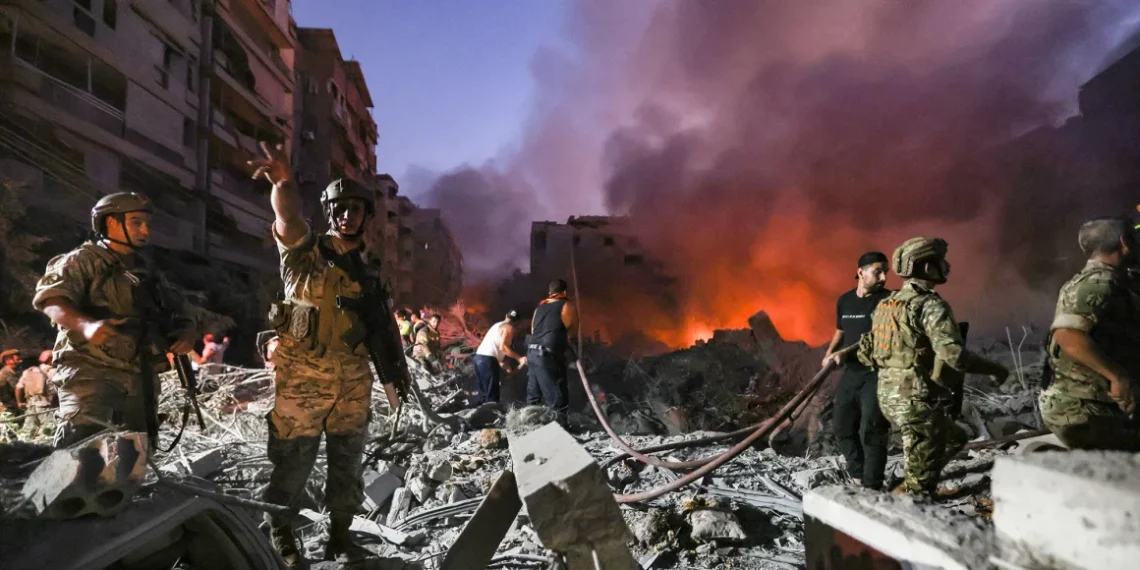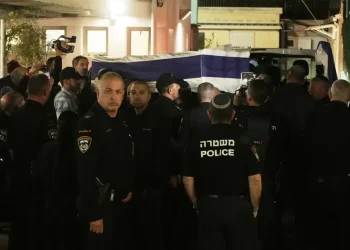Lebanon Ceasefire Talks Progress as Hezbollah Weighs US-Israeli Proposal
Efforts to secure a ceasefire between Israel and Hezbollah are intensifying, with Hezbollah reportedly considering a proposal from the United States and Israel. This development comes amid ongoing violence and a humanitarian crisis in Lebanon.
Diplomatic Negotiations in Full Swing
The proposal, relayed by US Ambassador to Lebanon Lisa Johnson to Lebanese officials, has sparked optimism. Lebanese authorities anticipate providing an official response by next Monday. According to sources, intense discussions are taking place in Beirut, involving political leaders and the American initiative. A Lebanese official described the current diplomatic push as being “on fire.”
Background of the Conflict
The conflict escalated in mid-September when Israel launched a major offensive in response to Hezbollah’s attacks, which were declared as acts of solidarity with Hamas and Palestinians in Gaza. Israel’s actions have displaced over a million people in Lebanon and caused significant casualties. On Thursday alone, Israeli strikes killed at least 43 people, including eight civil defense workers. The destruction also extended to the civil defense headquarters in Douris near Baalbek.
The US-Israeli Ceasefire Proposal
The proposal is the first significant step since a temporary ceasefire in late September collapsed following Israel’s killing of Hezbollah leader Hassan Nasrallah. The terms of the new agreement focus on:
- A 60-day cessation of hostilities.
- Enforcement of UN Resolution 1701, which calls for only the Lebanese Armed Forces (LAF) and UN peacekeepers to operate south of the Litani River.
- The withdrawal of Israeli ground forces to behind the internationally recognized border.
- Strengthened efforts by the LAF to combat smuggling along Lebanon’s borders.
The initiative is being framed as a foundation for a lasting peace.
Challenges and Points of Contention
Despite progress, several obstacles remain:
- Hezbollah’s Role: Enforcing the group’s retreat from southern Lebanon is a sticking point.
- Lebanese Armed Forces’ Readiness: Questions persist about whether the LAF can assume an active role in the region.
- Timing and Political Implications: Some Israeli officials want to finalize the deal before US President-elect Donald Trump takes office, potentially presenting it as an early success for his administration.
International Involvement
The ongoing negotiations have the endorsement of President-elect Trump and are being led by Amos Hochstein, the Biden administration’s special envoy to Lebanon. While Trump’s transition team has signaled support for the efforts, they are mindful of the Logan Act, which restricts negotiations with foreign governments before taking office.
Looking Ahead
The US-Israeli proposal represents a critical step toward de-escalation, but its success hinges on resolving contentious points and securing buy-in from all parties involved. The stakes remain high as the region grapples with both military and humanitarian crises.
This article was rewritten by JournosNews.com based on verified reporting from trusted sources. The content has been independently reviewed, fact-checked, and edited for accuracy, neutrality, tone, and global readability in accordance with Google News and AdSense standards.
All opinions, quotes, or statements from contributors, experts, or sourced organizations do not necessarily reflect the views of JournosNews.com. JournosNews.com maintains full editorial independence from any external funders, sponsors, or organizations.
Stay informed with JournosNews.com — your trusted source for verified global reporting and in-depth analysis. Follow us on Google News, BlueSky, and X for real-time updates.













